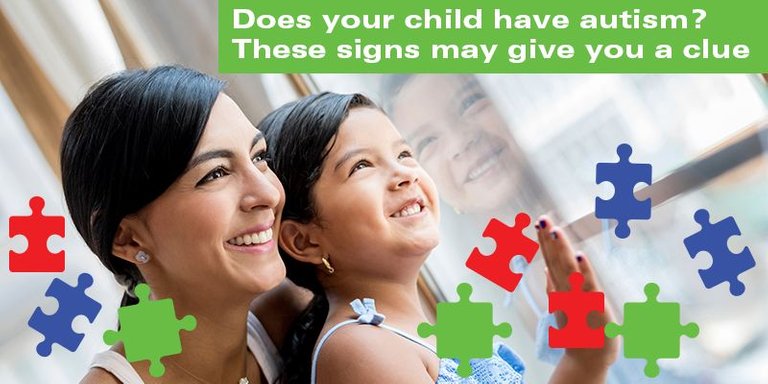
By definition, Autism Spectrum Disorder is a mental condition which normally present from early childhood and is normally characterised by a child’s inability to communicate and form relationships with other individual as well as inability to use abstract concepts and simple language.
In young children, it may be hard to detect the early signs of Autism but not impossible. Children diagnosed with the disorder develop differently from other infants, and there are definitely some warning signs that a parent or care giver may notice to help with earlier control of the condition.
Listed below are just some of the early warning signs a parent/caregiver should look out for just in case:
A. Social communication
i. Social Interactions
When it comes to social interactions, children suffering from this disorder tend to be withdrawn. They are unresponsive and at times not concerned with their environment.
At times the child:
• May not be able to point or hold up objects to show that he/she wants something
• May not be responsive when called by their name
• Seems not to be having a conversation with anyone when they babble
• He/she tends to copy what they hear from TV or from others
• May not understand simple instructions such as “Show me the cat”
ii. Non-verbal skills
In addition, the child may need assistance when it comes to non-verbal communication. Some gestures such as waving goodbye, or saying hello may be difficult for them to do without assistance or mimicking someone. They may also end up smiling for no apparent reason hence lacking in non-verbal communication.
iii. Relationships And Play
When it comes to relations and playing with other individuals, autistic children may stand out as they may end up not being interested in the games being played. They will also not be in the mood to initiate games as they are normally withdrawn.
B. Behaviour
I. Restricted interest
An autistic child tends to have a specific way in which they do their things. They may end up playing with one specific doll or car in one specific manner and never wish to change it. They may also like having things in a specific order such as a line and changing it would definitely upset them.
II. Routines
In addition, autistic children tend to get upset in a case where a routine is changed. The child will need to feed, sleep or leave the house at a specific timing, failure to do so there may be an outburst.
III. Repetitive movements
Children with this disability tend to repeat specific body movements or may have unusual body movements such as walking on toes, hand flapping among others.
IV. Sensory sensitivities
When it comes to experiences involving the sense, children with autism tend to have an elevated sensory experience as compared to other children. They may be easily upset by specific sounds or may eat food with only a specific taste or texture.
Never the less, the child may seek sensory stimulation by rubbing object against their mouth/face or seek out vibrating things such as washing machines.
In conclusion, if a child has most or some of the signs mentioned it’s advisable to see a doctor for further clarification and early diagnosis. It’s better 
Congratulations @digitalharmony! You have completed some achievement on Steemit and have been rewarded with new badge(s) :
Click on any badge to view your own Board of Honor on SteemitBoard.
For more information about SteemitBoard, click here
If you no longer want to receive notifications, reply to this comment with the word
STOPCongratulations @digitalharmony! You have completed some achievement on Steemit and have been rewarded with new badge(s) :
Click on any badge to view your own Board of Honor on SteemitBoard.
For more information about SteemitBoard, click here
If you no longer want to receive notifications, reply to this comment with the word
STOP